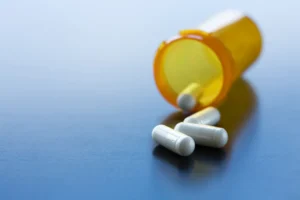Are you feeling trapped in a cycle of using Adderall just to get through the day? Originally intended to help with focus and control over attention disorders, Adderall can, unfortunately, lead to dependence, especially when used without proper medical guidance. If you or someone you know is grappling with this addiction, you’re not alone.
In this blog, we’ll uncover the truth about Adderall: its intended uses, how it can gradually turn into abuse, and the signs that suggest misuse. We’ll also guide you through understanding the risks of long-term use, and most importantly, we’ll explore effective treatment options and recovery strategies. So, let’s dive in and overcome the challenges of Adderall abuse.
Contents
- 1 Understanding Adderall and Its Intended Use
- 2 How Adderall Use Can Lead to Dependence
- 3 Recognizing Signs of Adderall Abuse
- 4 The Dangers of Long-Term Adderall Abuse
- 5 Treatment Options for Adderall Dependence
- 6 Recovery and Management of Adderall Dependence
- 7 Preventing Adderall Abuse in Teens and Young Adults
- 8 Conclusion
Understanding Adderall and Its Intended Use

Adderall is a prescription medication that is commonly used to treat Attention Deficit Hyperactivity Disorder (ADHD) and narcolepsy. Composed of a combination of amphetamine and dextroamphetamine, it is a central nervous system stimulant that helps increase focus, attention, and alertness.
Adderall works by increasing the activity of several neurotransmitters, including dopamine, norepinephrine, and serotonin, in the brain. This boost in neurotransmitters results in increased alertness, concentration, and energy levels, and can also elevate mood. While these effects can be highly beneficial for those with ADHD or narcolepsy, the stimulating properties of Adderall can also lead to misuse and dependence, particularly if the medication is not used as prescribed.
How Adderall Use Can Lead to Dependence
Adderall’s effectiveness in treating ADHD and narcolepsy comes from its ability to increase concentration and alertness. However, the same properties that make it effective can also make it addictive.
- When Adderall is used, it causes a significant release of dopamine, creating a rewarding feeling that can lead to the medication being used for non-medical reasons, such as to enhance mood or performance.
- Regular use of Adderall, especially in amounts greater than prescribed or via methods it wasn’t prescribed for (like snorting), can alter the brain’s natural chemistry and its ability to produce dopamine naturally. Over time, this can lead to a dependence on Adderall to feel normal or perform daily tasks, as the brain begins to rely on the drug to stimulate dopamine production.
Recognizing Signs of Adderall Abuse
 Identifying Adderall abuse is critical, as early detection can help prevent the escalation to dependence or addiction. Let’s have a look at these signs.
Identifying Adderall abuse is critical, as early detection can help prevent the escalation to dependence or addiction. Let’s have a look at these signs.
Behavioral Signs
- Increased Usage
- Preoccupation with Obtaining and Using the Drug
- Risk-taking behavior (e.g., buying Adderall illegally).
- Neglecting Responsibilities
- Social Withdrawal
Physical Signs
- Weight Loss
- Physical Exhaustion
- Sleep Disturbances
- Cardiovascular Issues
- Dizziness and Headaches
Psychological Signs
- Mood Swings
- Increased Anxiety
- Exhibiting unusual levels of suspicion or aggression.
- Difficulties in thinking clearly, memory problems, or confusion, which may worsen with prolonged abuse.
Recognizing these signs in oneself or others can be the first step toward seeking help. If you or someone you know exhibits any of these symptoms, it’s important to consider professional evaluation and treatment. Addressing Adderall abuse early can significantly improve the outcome and help individuals regain a healthier lifestyle.
The Dangers of Long-Term Adderall Abuse
 Long-term abuse of Adderall can lead to serious health complications that affect both physical and mental well-being.
Long-term abuse of Adderall can lead to serious health complications that affect both physical and mental well-being.
Cardiovascular Issues
Chronic abuse can lead to more severe cardiovascular issues, including:
- Increased Risk of Heart Attack and Stroke
- Heart Palpitations and Arrhythmias
Mental Health Problems
The psychological effects of long-term Adderfor all abuse are significant and can exacerbate or lead to mental health disorders:
- Depression
- Anxiety and Panic Attacks
- Psychosis
Cognitive Impairments
- These changes can impact all areas of an individual’s life, from personal relationships to professional responsibilities.
The dangers of long-term Adderall abuse are significant and can lead to life-altering consequences. If you or someone you know is experiencing any of these symptoms, it is vital to seek professional help. Treatment can mitigate these risks, help manage dependence, and provide strategies for recovery and maintaining a drug-free lifestyle.
Treatment Options for Adderall Dependence

Here’s an overview of effective treatment approaches that can help manage and overcome Adderall dependence.
- Detoxification
- Behavioral Therapies (Cognitive-Behavioral Therapy (CBT) & Motivational Interviewing)
- Support Groups (Narcotics Anonymous)
- Medication-Assisted Treatment (MAT)
**While there are no specific medications approved to treat stimulant addiction, certain medications may be used off-label to manage symptoms of depression or anxiety that often accompany Adderall withdrawal**
Combining these treatment approaches offers the best chance for recovery from Adderall dependence, addressing both the physical aspects of withdrawal and the psychological challenges of addiction.
Recovery and Management of Adderall Dependence
Recovering from Adderall dependence involves ongoing management and vigilance to maintain a drug-free lifestyle. Here are some practical tips to help manage recovery effectively:
- Develop a structured daily routine to reduce uncertainty and minimize stress, which are common triggers for relapse.
- Understand the situations, environments, or emotions that trigger your desire to use Adderall, and develop strategies to avoid or cope with them effectively.
- Stay Engaged in Therapy.
- Engage in regular physical activity, maintain a balanced diet, and ensure adequate sleep.
- Practice mindfulness meditation, deep breathing exercises, and yoga, which can help manage stress without resorting to Adderall.
- Develop a plan for when cravings strike. This might include calling a friend, engaging in a hobby, or attending a support group meeting.
By integrating these tips into your daily life, you can build a strong foundation for a sustained recovery from Adderall dependence. Each step you take reinforces your commitment to a healthier, drug-free future.
Preventing Adderall Abuse in Teens and Young Adults
 Adderall abuse is particularly common among teens and young adults, who often use it to enhance academic or professional performance. However, there are several approaches to prevent Adderall abuse in these vulnerable groups:
Adderall abuse is particularly common among teens and young adults, who often use it to enhance academic or professional performance. However, there are several approaches to prevent Adderall abuse in these vulnerable groups:
- Schools and workplaces should provide education on the risks and realities of prescription stimulant abuse.
- These institutions can offer workshops and resources on time management and effective study techniques, reducing the perceived need for performance-enhancing drugs.
- Parents and guardians should encourage open dialogue about the pressures to perform and the dangers of drug misuse.
- For those prescribed Adderall, it’s important that parents monitor dosage and refills to ensure it is used appropriately.
By implementing these strategies, communities can significantly reduce the likelihood of Adderall abuse among teens and young adults, promoting healthier approaches to managing stress and achieving academic and professional success.
Conclusion
Navigating the challenges of addiction, whether it’s to Adderall or any other substance, can be daunting. However, you don’t have to face this journey alone. At QuitMantra, we are dedicated to providing you with the support and resources needed to overcome addiction effectively. Our tailored therapy sessions and comprehensive deaddiction programs are designed to meet your individual needs and help you regain control of your life.
If you or someone you know is struggling with addiction, consider taking the first step towards recovery today. Visit QuitMantra to book your trial therapy session or join our deaddiction program. Together, we can work towards a healthier, addiction-free future.
